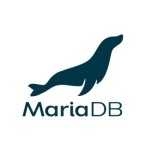I love the developer version. Microsoft tells you about all the cool things they provided for everybody. You can develop and do anything with it. It's really good to learn. Oracle will not give you that much freedom, and Microsoft really kills it.
You don't do anything with it but develop, learn, break, and push it to its limits. If there are problems, you show Microsoft or ask them, "what's going on here?" There is good community support for the developer edition, and that's what I really appreciate. You can teach people about it without limitations. You can have small databases created. You can keep it for a year and then work on it. It's a good thing for learners and developers.
The price could be better. It costs a lot, and competing databases like Postgres are free.
I have been using SQL Server for about ten years.
There are problems in all systems, and I don't see any difference between open source and proprietary solutions. SQL Server, Postgres, and Oracle are all vulnerable. There are no known issues per se, but any system can be broken. There is nothing special about this database.
SQL Servers and other databases are all scalable. I just don't see any problem with scalability.
Whenever we have issues, we talk directly with Microsoft. They are responsive, and they help.
I'm more into open source solutions, and I love Postgres. I've worked as a database administrator as well. But I really hate all the tools used to manage performance or backup or just any of those disaster, recovery, and availability solutions. I hate them. They really impose a lot of overhead in a demonstration and aren't really flexible. When you're in the cloud, you don't have to worry about most of those things.
Some of them still exist, but the cloud providers do provide them and you stick to that. You enhance them or add some more features, but really the most hated feature is, making sure that your database really can recover from many kinds of disasters. Resiliency, the most important part and when that is really managed by the cloud online, the overhead costs are removed. The rest is really easy. Performance is okay, and there are indicated spots for data because I work with financial data and a lot of it is our important critical data. So, the cloud is really the best thing that happened to us.
When it comes to the initial setup, most of them can be automated. For example, most setup settings for progressions, management, disaster and recovery, failover, and failback. Most of those things can be automated and provisioned into one kind of pipeline. Connecting that data to an application and even provisioning from the code repository through Jenkins. Those things are really easy to automate.
I would advise potential users to use SQL Server with Microsoft Azure. I don't recommend managing it locally.
On a scale from one to ten, I would give SQL Server a seven.
















